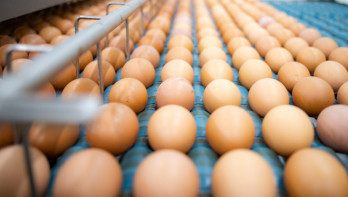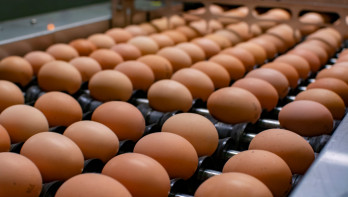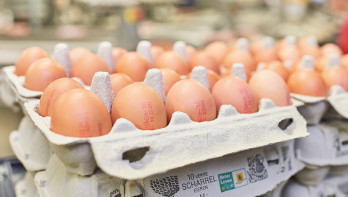Analysis Feature
German eggs are becoming more expensive rapidly
The egg market has taken a significant step up this week. This applies to the Netherlands, but even more so to Germany. The increase can largely be attributed to scarcity in our eastern neighbors. In addition, bird flu is once again putting pressure on especially the South European egg prices.
The rise of the egg market has found a new acceleration. In week 40, the price for 100 eggs size M was €12. Especially in week 41, the price increased significantly. On that day, the egg price rose by 30 cents. Add another increase of 5 cents in the following week and you reach a level of €12.35.
The egg market is starting to pick up again. Compared to last year, the price of eggs lagged behind at the beginning of autumn. This is mainly due to a stronger supply. As a result, it took longer this year until the reserves were sold out. The reserves are now almost empty again, and the difference has been largely closed. Where the difference between this year's and last year's prices was exactly €1, in week 42 the difference has been reduced to just 20 cents.
Especially the prices in our eastern neighbors are driving up the Dutch prices. The increase in Germany is much stronger. While the Dutch egg prices were just above the German ones this summer, Germany is now paying almost an extra €1 per 100 eggs. The price increase of the last two weeks is also just below the €1 mark. In week 39, the price of eggs was €12.40. Two weeks later, the price increased to €13.30.
Before the summer, it was expected that the shortages at that time would not return. But in the German market, it is reported that the demand has grown much stronger than expected. Especially the demand among consumers is giving the market a significant boost. The demand for table eggs increased more than expected, while the demand for eggs from the industry remained constant.
Due to the high demand, German packing stations report that there are few stocks left. The German market imports eggs from all over Europe, but it remains difficult to obtain sufficient stocks. Also in South and East Europe, the supply is virtually nil. As a result, not only the trade on the free market is stuck. Also, existing contracts must be revised here and there because packing stations cannot deliver enough. This scarcity is felt within two categories, namely for free-range eggs and for organic eggs.
Bird Flu
Finally, the market is starting to worry again about outbreaks of bird flu. In European laying poultry farms, there are still few problems, but the number of infections among wild birds is increasing. In fourteen countries, infections have been found among wild birds. The virus has now been found quite close, including in Germany. Due to the market tightness, considerable tension is now felt among our eastern neighbors. Additionally, the virus has also reached Denmark. The fact that poultry farmers are spared for now does not mean that the virus will not spread. The risk still exists, as evidenced by a recent increase in the number of infections in birds kept as pets or in zoos.
On the world market, the situation is even more problematic. Especially in North America, the number of infections on farms has increased significantly, leading to a sharp rise in egg prices. American egg prices are at their highest level since the increases after the Ukraine war. Currently, $3.20 per dozen is paid in the United States.



